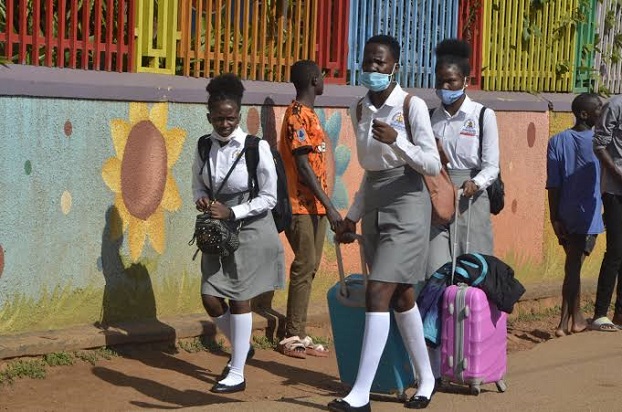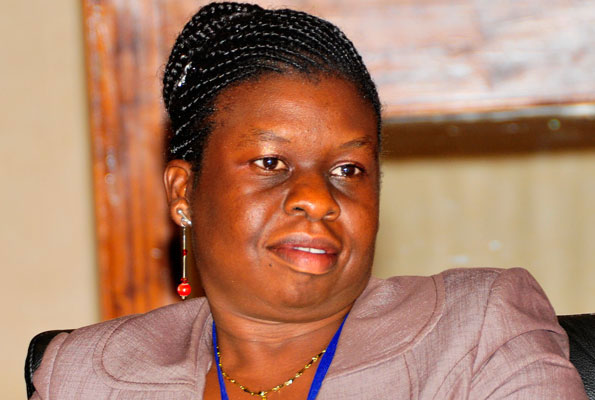Many schools closed earlier
The early closure of school before the official school calendar is likely to affect the recovery of time lost during the COVID-19-induced lockdowns. Several schools released learners for the second holidays three or two weeks before the official closure.
The Ministry of Education and Sports set August 12, 2022, as the last day of term two. However, by July 21, 2022, several schools had already started sending learners for holidays. Francis Ojulong, a senior educator, who is also the headteacher at St Martin’s primary school Mulago, points out that in the second term alone, some private schools might have wasted nearly six weeks out of the 14 that were allocated for teaching and learning activities.
“If they break off for holidays three weeks to the official date, don’t count three weeks. Last week, must have been occupied by examinations, which means there was no teaching taking place in that week too. That pushes the uncovered time to four weeks,” said Ojulong. He further points out that there is a possibility that the same schools carried out the beginning of term and midterm assessment thus wasting another two weeks.
The Education ministry had prohibited beginning of term and midterm assessments at the beginning of the year claiming that schools needed to spend most of their time teaching and making up for the lost time. Nevertheless, most of the schools went ahead to conduct assessments and provided results to parents during school visitation days.
Adrine Kabananukye, the deputy headteacher of Kololo SS justifies Ojulong’s calculation of the time that has not been utilized in the second term. “Private schools might be having the largest number of school children today. This means the majority of learners are incurring substantial learning losses after the lockdown. The question is; if the recovery time is lost, when will it be recovered?” Kabananukye noed.
Government-closed schools for 22 months, which is the longest school closure recorded across the world. To limit the impact and try to address learning losses, the ministry of education and sports drafted a plan extending the school term and decreasing the number of days for holidays to allow the recovery of lost time when schools opened their doors to learners.
The intervention came at a time when school proprietors were pushing the government to reopen the education sector. The school owners, their lobbyists in parliament, and other forums claimed that they were worried about the fact that children were losing out on their academics. When URN contacted selected school administrators, the majority said they have decided to close early because of the hiked food prices.
However, to some parents and concerned educationists, there is a bigger undisclosed problem being created. Hasadu Kirabira, the chairman of the National Private Educational Institutions Association (NPEIA), says that given the economic situation, schools had nothing to do. Kirabira actually points out that the association discussed the early school closure and it was agreed that if a school was not able to sustain learners, it was better to send them back home.
Kirabira argues that more learning time might be lost in the third term as well if the situation remains as it is currently. He says that schools might not increase fees because parents will not be able to pay thus seeing a reeducation of the school term as the available solution. He says to minimize the loss, schools have been advised to look at the syllabus and compile the work that they have not covered into holiday packages that can be given to learners to study during the holiday so that teachers conduct remedial work in the first weeks of the third term.
In a recent interview, Abdulhakimu Nyombi, the Coordinator of the Umbrella of private school proprietors in the Bukomansimbi district also noted that when they realized that they were unable to complete as planned, they hastily delivered the lesson content to the learners.
Given that the material load is planned according to the duration of the term when the syllabus is being created, Nyombi’s argument raises further concerns about the quality of instruction that may have been employed. Nyombi also notes that if there was any time lost during the second semester, it wasn’t just at private schools; numerous public schools also lost nearly three weeks due to the teachers’ strike.
Kirabira blames the situation on the government for having failed to support private schools during and after the COVID-19 school closures. “We came out of the lockdown with a lot of challenges. Before we could handle them, we are seeing prices of food, utility, and other things we use in our school skyrocketing. We had asked for a bailout from the government but nothing was given to us. How can we survive?” Kirabira wonders.
Dr. Jane Egua, Director for Higher Technical Vocational Education and Training in the Ministry of Education and Sports, says that the wastage is definitely affecting the receiver of the education timelines since they don’t want any child to be left behind.
Dr. Egau, who is also a member of the COVID-19 Education Response Committee, adds that the committee is set to sit to discuss all the interruptions that have occurred ever since the plan was issued so that they evaluate.
In order to make up for missed learning time during the course of this year, Dr Egau says that extending the school day and adding weekend days to the regular school schedule should be explored moving ahead.
Prior to reopening, the National Planning Authority and World Bank had proposed the two, but they were not taken into consideration by the ministry since it was observed that even if they wanted to make up for the lost time, students required rest time.
Numerous analysts have noted that the unusual school closures caused by COVID-19 will have an impact on the educational system for years to come. For instance, according to a recent assessment by the Economic Policy Research Center (EPRC), the impacts of COVID-19 on the Ugandan education system will be totally reversed by 2030.
The situation could worsen than anticipated due to limited investment in the sector and other post-COVID-19 effects.





